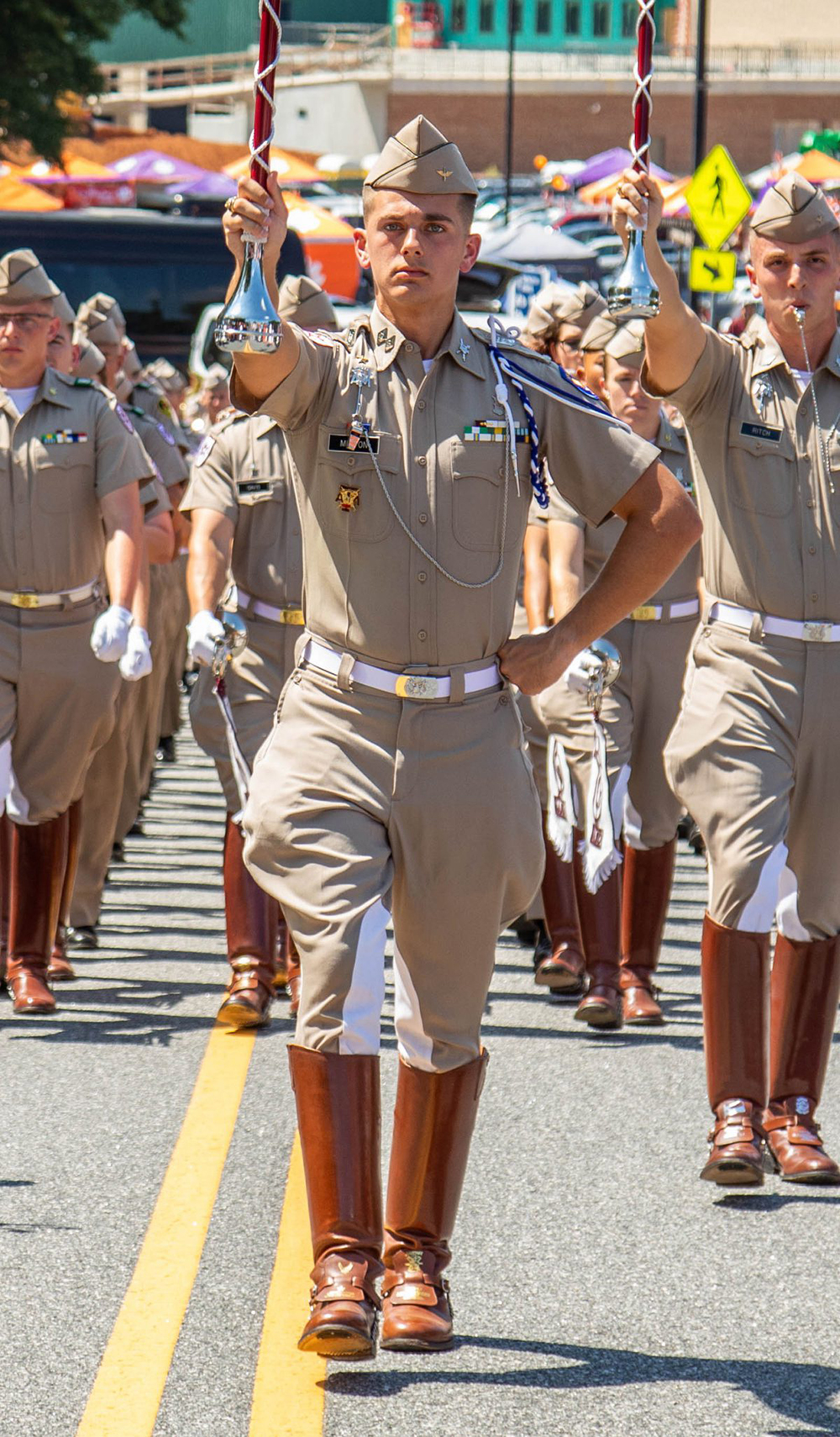
Juggling several leadership positions within the Fightin’ Texas Aggie Band and Corps of Cadets with a full course load sounds like a daunting task, but computer science and engineering student Michael Milton ’20 is excelling on all fronts. He discusses his leadership roles and how he uses the skills he’s honed at Texas A&M University to help optimize his time, both in the classroom and on the marching field.
Q: What is your role within the band and what does that entail?
A: I have two different jobs within the band. One is being the head drum major. Each week I am the one out in front of the band leading and conducting. There are two other drum majors conducting with me. My main job is teaching the band the drill and practicing it because we learn a new set of drills every week. I am also the career readiness and scholastics officer for the whole band. I make sure everyone is doing well in their studies.
Q: Why did you choose to major in computer science and engineering?
A: My sophomore year of high school actually was my first computer science class. I saw this sign that basically said, “Hey, if you're really good at math, you should check out this computer science class.” I took another two coding classes during my junior and senior year. I knew even before I came to Texas A&M that I wanted to do computer science.
Q: What sparked your interest to pursue a career in the cybersecurity field?
A: After graduating from high school, I thought about going into video game design with a minor in visualization, but then I realized I can't draw. During my sophomore year at Texas A&M, I got a scholarship that came with a contract for the United States Air Force. At the beginning of my sophomore year, the Corps created a cybersecurity unit. When I joined that, I found that I really enjoyed the work I was doing there, so I picked up cybersecurity as a minor, which I'm actually using to cover the emphasis area for my major.
Q: Does your background in computer science help you in your leadership roles?
A: One of the things that’s always interested me is optimization — looking at things and asking myself, “How can I do this more efficiently?” Being the head drum major, career readiness and scholastic officer for the entire band, and training officer for the cybersecurity unit, time management can be kind of difficult, and my computer science background has helped me manage my time efficiently. It’s also helped with explaining the drill during marching practice in a way that makes sense to everyone. It’s helped us learn and get through drill sets faster.
Q: Have you participated in any internships?
A: Last summer I interned with Lockheed Martin and I really enjoyed that, so I am looking forward to going back next summer.
Q: What do you hope to do as a career or after graduation?
A: I’m on contract with the Air Force, so after I graduate I'll be commissioned as a second lieutenant. I would like to be a cyber-warfare officer.
Q: How has your time in the Corps helped you in engineering? Or vice versa?
A: I think the Corps and engineering have helped me with each other. The Corps taught me to have a great attention to detail, which served to help me do very well in various projects over the years here, and my engineering course load has taught me time management, which has helped me be able to balance my coursework with my Corps responsibilities and has allowed me to take on multiple jobs within the Corps at the same time.
Q: What advice would you give to freshman computer science students?
A: Definitely study for CSCE 222. I would also say to get to know your professors. A lot of professors here are really, really nice. Get to know them. They want to get to know you and they enjoy teaching. It’s really helpful being able to go to them and say you didn’t understand something in class and they're perfectly willing to talk to you about it. And I found for me, that reading the textbook always helps if you don’t understand it in class.